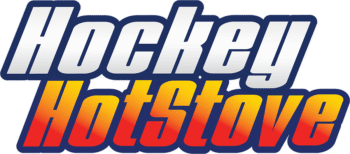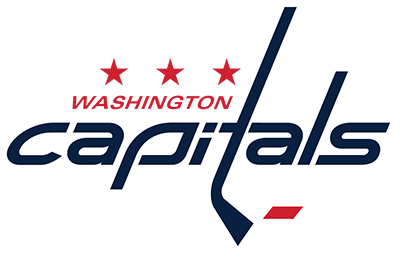The favorites to land the next NHL expansion teams are Houston and Atlanta. There’s an outside possibility that Phoenix might rise again should one of the other two not land a team. Nevertheless, there are a couple other cities with their dreams of hosting the top hockey league in the world in the near future, either by expansion or relocation.
With expansion fees expected to reach $2 billion, clearly the league has entered a new phase of its history where teams are not only points of civic pride, but also helping to drive economic engines through development and tourism in each individual market, and therefore, a lot of interest is going into a league that has only added a pair of expansion teams since the turn of the century in Las Vegas and Seattle.
And, with the NHL relatively stable in its 32-team with few franchise in immediate need of relocation with the Coyotes off to Salt Lake City and arena questions in Ottawa and Calgary settled, expansion seems to be the best route to entering the league for the forseeable future.
So here, in alphabetical order, are five cities not among the favorites looking to break into the NHL in the next few seasons, and what each could bring to the table in terms of the league’s footprint in North America. While they are longshots to enter the league anytime soon, it is a pretty diverse list with pluses and minuses for the NHL.
Austin
Yes, Houston is one of the two favorites to secure a franchise the next time the NHL expands. However, let’s throw a different Texas city into the mix: Austin. The fast-growing capital is looking to add its first big four professional team in the coming years, and that makes this one of the more intriguing dark horse markets for the NHL to consider.
When the Golden Knights arrived in Nevada in 2017, they were the first major professional team in the city, and that helped engrain them in the city’s culture quickly, even after the Raiders and A’s planned their moves to the city in the following years. While the Austin sports landscape is a little more complicated with the large presence of the NCAA powerhouse Texas Longhorns and the recent addition of MLS’ Austin FC in 2021, the city already has a solid hockey presence already with the American Hockey League’s Texas Stars playing in suburban Cedar Park.
Last year, the top affiliate of the Dallas Stars averaged over 6,000 fans a game with 13 sellouts at H-E-B Center, and have played in three Calder Cup Finals since the franchise arrived from Iowa in 2009, winning one championship in 2014.
The geography of the market is a double-edged sword for Austin’s bid for a team. While the city would be a natural rival to Dallas with the two cities separated by less than 200 miles, a front-running Houston bid could derail any short-term move to the city as the NHL would be highly unlikely to add two Texas teams in one round of expansion.
Still, with a rapidly growing and wealthy population in the city, it does become an attractive possibility for the NHL, if not this round, then perhaps down the road for either expansion or relocation should that come to pass.
Cincinnati
While the city on the banks of the Ohio River doesn’t have an NHL team, they do have a history with the sport over the past 50 years. While not a high-profile candidate for expansion, the city was mentioned by name by Commissioner Gary Bettman in his 2024 All-Star Game presser among a group of cities interested in landing a team.
The most prominent Cincinnati hockey team was the World Hockey Association’s Cincinnati Stingers, which played at the then-Riverfront Coliseum from 1975 to 1979, and that team was the home of future NHL stars Mark Messier, Mike Gartner and Mike Liut. The Stingers ended up lasting until the end of the WHA, as the team was paid to fold as the NHL accepted four other WHA teams for admission into the NHL.
The city also was home to the AHL’s Swords and Mighty Ducks in the 1970s and 1990s, respectively, and has also had three different versions of the Cyclones, which played in both the International Hockey League and the ECHL, where they currently play the Heritage Bank Center, the current name for the Coliseum. The Cyclones have built a stronger following in recent years, averaging over 6,600 per game the last two years, and also have won a pair of Kelly Cups in 2008 and 2010.
The biggest piece the city would need for any NHL team is to replace their current arena, which has been in use since the Stingers started play in 1975 and was originally named for Riverfront Stadium which sat next to the building, but was torn down in 1999. The current site is a good one potentially for the new arena, sitting on land next to what is now Great American Ballpark, the home of the Reds on the spot where the old multi-purpose stadium used to stand.
Another unanswered question about a potential Cincinnati bid is how receptive the Columbus Blue Jackets, Ohio’s current NHL franchise, would be in adding one just under 110 miles southwest of their arena, as while it would create an instant rivalry, it would be close enough to eat into their TV footprint and erode the southern part of their base, so at the very least, compensation would be in order should Cincinnati get a franchise.
Indianapolis
Another former WHA city in the hunt for an NHL team is Indianapolis, with the Indiana capital being known in hockey circles as Wayne Gretzky’s first professional hockey home with the Racers in 1978.
Unfortunately for the Racers, the Great One was dealt to Edmonton just eight games into his tenure in Indianapolis and the team didn’t last much longer after that. Gretzky went to make hockey history in Edmonton the cash-strapped team looked to sell off its prime assets, which included the then 17-year-old future phenom before folding partway into the WHA’s last season.
The current incarnation of hockey in Indianapolis is the ECHL’s Fuel who started in 2014, and moved into suburban Fishers in a new 7,500-seat arena last season, and drew over 5,600 per game in the new barn. The city also has a strong track record of supporting its other pro teams, as the NFL’s Colts and NBA’s Pacers both draw well.
The city would provide a natural rivalry with its location in the crossroads of the Midwest, with Chicago, Detroit and Columbus all within a couple of hours’ drive from home, and its location would give the NHL flexibility which conference the team could play in. Although the city lies in the Eastern Time Zone, the travel makes it a natural fit for the West.
A big question would what the city would do for a new NHL-ready arena, as Gainbridge Fieldhouse, home of the Pacers, isn’t built for hockey and the Fishers arena is too small for an NHL team. Add to that the city would need to find someone willing to invest $2 billion in a team as well as an arena project, and it seems like it may be a long shot until these questions are resolved, which may not come by the next round of expansion.
New Orleans
The Louisiana cultural capital has a very brief hockey resume, hosting an ECHL team named the New Orleans Brass from 1997 to 2002. But that lack of hockey history didn’t stop the state’s governor Jeff Landry and House Majority Leader Steve Scalise in pushing the possibility earlier this year in public statements welcoming the possibility of the NHL in New Orleans.
Despite the high-powered push, the city seems a bit of an odd fit for the NHL, as it would be the second-smallest U.S. television market in the league in 50th place overall, trailing only Buffalo – and not by much.
The city does host the NFL’s Saints and NBA’s Pelicans, and a team would play at least at the start at the home of the basketball franchise, the Smoothie King Center, which would seat 16,900 for hockey – even though the arena has not hosted the game since the Brass called it quits over 20 years ago in 2002.
The plus side of a team in Louisiana would be the influx of tourism from visiting fans, as Landry cited in his push to land a team, but it also would be difficult to support a franchise on a majority of visiting tourists, even for a city as well-known for hosting events as the Big Easy.
While an intriguing option for some, New Orleans likely would have to be patient for its chance to play on hockey’s biggest stage.
Quebec City
Unlike the other candidates, Quebec City took the opposite approach to the NHL, being proactive and building a league-ready arena and waiting for the league to come calling.
Quebec City, of course, was host of the NHL’s Nordiques from 1979 to 1995, part of one of the league’s bitterest rivalries with province-mate Montreal and building a solid contender which finally won the Stanley Cup once the team left for Denver in 1995-96.
Now, after the team was part of an exodus of Canadian teams in the 1990s, the city still hopes for a return of the league, replacing the former Le Colisee with a new arena built specifically with the NHL in mind. Naysayers keep insisting it’s unlikely. Then again, the same folks once insisted the NHL would never return to Winnipeg. Moral of the story: never say never. Even so, a Quebec return seems to be a dark horse at best.
The Videotron Centre seatws 18,259 for hockey, and is currently the home of the QMJHL’s Quebec Ramparts. But the arena opened 10 years ago this month and still hasn’t really gotten the city closer to the top of the list for NHL expansion or relocation. And the NHL’s last expansion team north of the border came over 30 years ago when the Ottawa Senators entered the league in 1991.
The city is the seventh-largest market in Canada – and largest without an NHL club – but would barely make the Top 50 of U.S. and Canadian markets combined. While Quebec City has a home waiting a new expansion club, it seems less and less likely that the city will host the NHL once again.




Indianapolis is in the Eastern time zone.